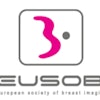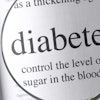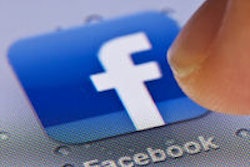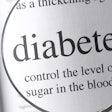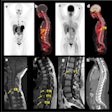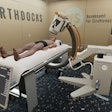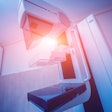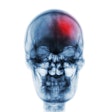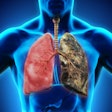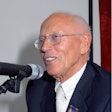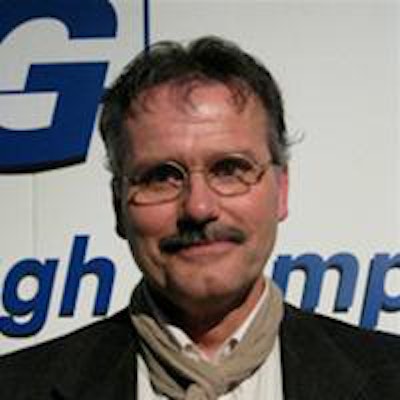
LONDON - Last weekend was the 10th anniversary of the mapping out of the human genome -- the building blocks of life. In 2003, Steve Jobs paid $10 million (7.65 million euros) to have his DNA sequenced. Today, it costs around $300 (229 euros), dramatically widening availability and reach of this technology to the general public.
Such a rapid pace of change begs the question of how similar scientific advances will shape the healthcare landscape in the future. Some experts believe there will be a total role reversal involving the use of digital technology and notably crowdsourcing, giving greater control to patients.
At this week's International Forum on Quality and Safety in Healthcare, being held in London, discussion focused on the effect and reach of emerging e-health technologies, providing a glimpse of where they might take us by 2050.
 Healthcare professionals can expect big changes in the next 10 to 15 years, according to Lucien Engelen.
Healthcare professionals can expect big changes in the next 10 to 15 years, according to Lucien Engelen."You want to discuss e-health in 2050? It's going to happen much earlier than that!" warned Lucien Engelen, director of the REshape & Innovation Center at Radboud University Nijmegen Medical Centre in the Netherlands.
He took the audience of healthcare professionals on a 15-minute tour of the emerging use of crowdsourcing -- the obtaining of ideas and services from large groups of people electronically -- in patient-driven healthcare. At REshape, researchers are elevating patients to the roles of primary partners via digital technology and social media. "We want to create new projects that provide patients with the capability to work as partners with healthcare," he said.
By creating and developing better tools to improve healthcare, Engelen wants to capture the ideas of healthcare professionals, patients, family, and logistics teams that he and his team can then mold into small projects. "Within 30 days we try and take these ideas to a level of realization, a prototype project. Our premise is not to prove that something works, but to prove that it doesn't work."
E-health landscape in 2050
The big change will be that much more power will lie in the hands of the patients, he predicts. Literally, hands tapping keyboards, as this will mainly be due to large numbers of patients electronically sharing data that is owned by patients and issued by patients.
"The power for hiring researchers and medics will lie with the patient by 2050," Engelen said. "Crucially, you [addressing the nurses, doctors, and researchers gathered] will be subscribing to them -- the patients and their data."
He pointed out that devices such as consumer-run smartphones with navigational capacity will transform healthcare in the next 10 to 15 years, let alone by 2050. Research conducted by Engelen on locating automated external defibrillators (AEDs) in the Netherlands illustrated the power of crowdsourcing at work.
A dedicated website was set up and people were asked to say where they thought the nearest AED was located and to enter this information into a database that mapped the sites. The project encapsulates his driving beliefs that research is about asking questions, and crowdsourcing is about co-creation. With the AED project, crowdsourcing created a database locating more than 18,000 AEDs in the Netherlands.
"Already, over 250,000 people have downloaded the app. This experiment shows how well crowdsourcing can work. We'll ignite this program again on smartphones in the summer with a game on the phones to map even more defibrillators," he said.
Growth of crowdfunding
Crowdsourcing has also proven to be a fiercely successful way of raising funds for start-up projects, a process logically referred to as crowdfunding. Engelen highlighted "Kickstarter," a platform for raising funds for creative projects through crowdfunding on its website.
"It's for people who have great ideas but no money. They can post the idea and ask who wants to help and provide funds," he explained, noting that projects range from movies and games to technology.
One group of innovators wanted to raise $35,000 U.S. [26,700 euros] for a pen that can write on ipads. "Within 30 days they had raised $160,000 [122,000 euros]. Two guys from Palo Alto wanted to invent a new games console based on open sources.
"Everyone thought that they were nuts asking for $950,000 [723,000 euros] but they raised $8.6 million [6.6 million euros] in 30 days," Engelen said. "This is a reason why I think this could be used for healthcare research. Research without patients at the table is like driving backwards blindfolded. So we came up with a new system where the conventional system of money given to researchers and pharma to ultimately benefit patients is flipped around so patients design their own research, create money through crowdfunding, and then the patients themselves hire the researchers."
Engelen and his colleagues at St. Radboud run an online community of patients and family where they can submit ideas for applied research.
"From these ideas we mold a plan and with the help of patient groups and advisory boards we create a research plan posted on the website medcrowdfund.org," he noted.
The site is currently in Dutch and will be available in English this summer. But Engelen and his team give the researchers a chance too. A sister website called medcrowdpitch.org allows researchers to pitch themselves in short videos and their offering -- their specialist field and their previous work explained in lay language in 30 seconds. Together these websites provide the design, the money, and the researchers, he explained.
Overall, Engelen is presenting nothing less than a paradigm shift in healthcare thinking by actively placing patients at the very heart via novel employments of digital technology and social media.
"From my perspective, in 2050, research via crowdsourcing will be used, which will create new boundaries and new perspectives. Researchers will be hired by patients and together with family, they will be the experts because they have the disease," he concluded. "In the future, the only permanent in healthcare will be change."
Links to websites and videos mentioned above can be found here.
